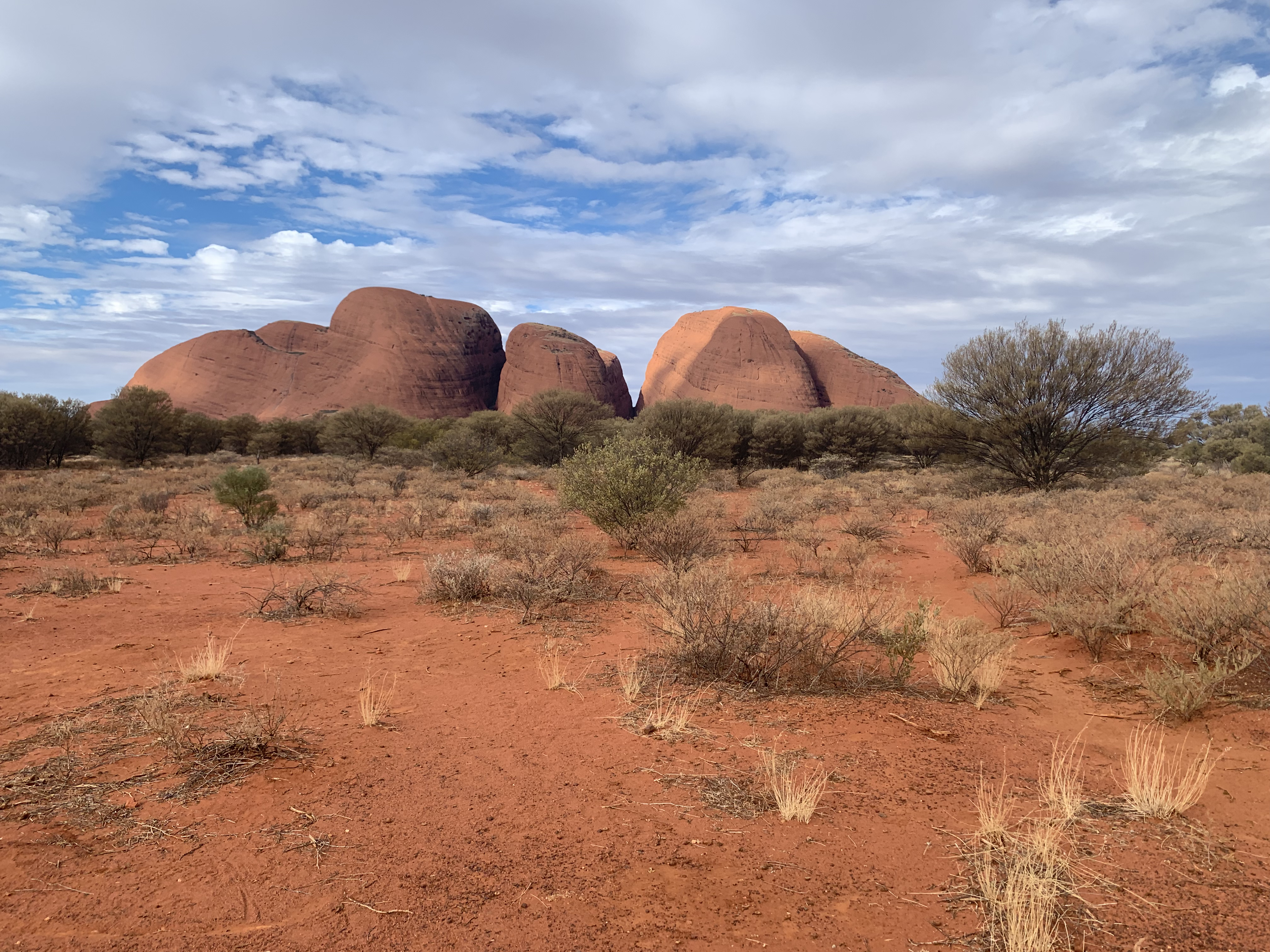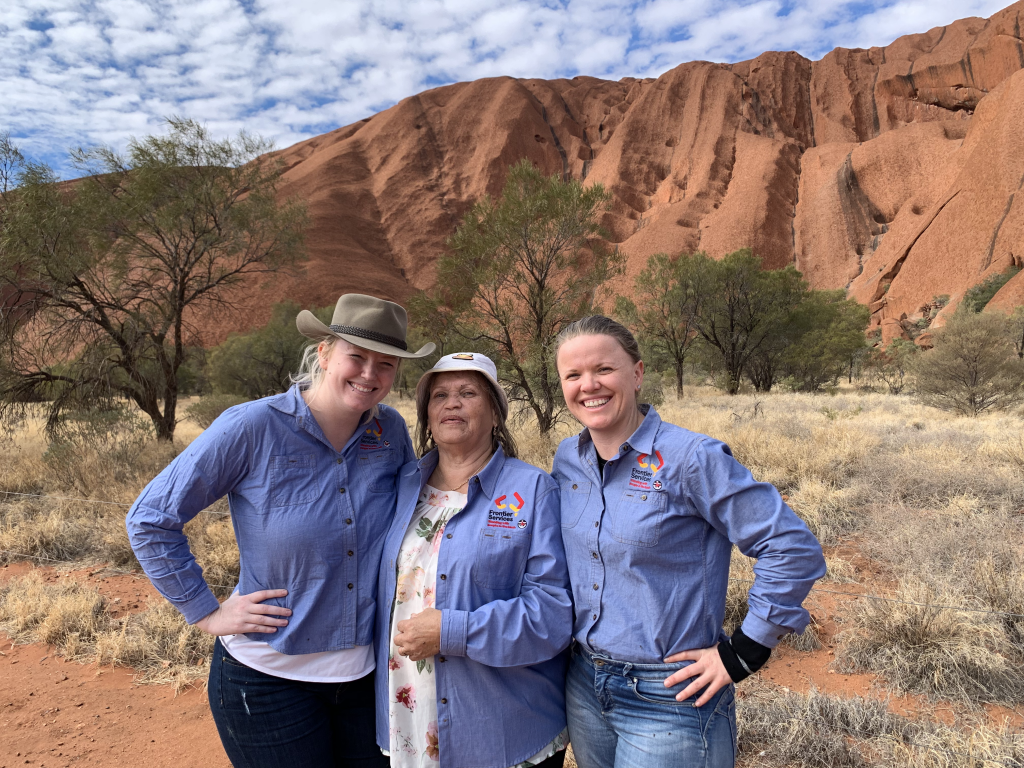
Come together in the spirit of reconciliation
This year, National Reconciliation Week celebrates its 20th anniversary (27 May – 3 June) with the theme In This Together. It’s a theme with deep resonance as Australians, both on the coast and inland, deal with a barrage of challenges which have included drought, bushfires, floods, a global pandemic and economic instability. Just as Australia’s ability to survive challenges and move forward as a nation relies on all of us – individuals, organisations and communities – so too do we need to come together in the spirit of reconciliation.
We spoke to some members of the Frontier Services family about the meaning of In This Together. While they have different life experiences, their approach to reconciliation and their suggestions on how we can start our own journeys of tolerance and understanding are remarkably similar. We hope you feel inspired to join the conversation, learn more about our shared history and consider your journey too.
Benjamin Quilliam is our Bush Chaplain in our Centralian Remote Area. His region includes Alice Springs and surrounds as well as the APY Lands (Anangu Pitjantjatjara Yankunytjatjara) which is home to around 2,300 First Nation people.
The APY Lands is large, sparsely populated and located in the remote northwest of South Australia. The people speak the Pitjantjatjara language, making English a second or third language for many. According to a report tabled with the South Australian Government in September last year, the APY Lands are home to some of the highest levels of intergenerational disadvantage in Australia.
Benjamin has lived in Alice Springs for four-and-a-half years and been our Bush Chaplain for three. When you speak to Benjamin about what In This Together means for him and his community, the overwhelming message is about confronting hidden biases and learning the facts.
“There are still a lot of cultural barriers in this area as well as many inequalities. Even so, there are many things to be learned from our First Nations People. It begins with sitting down and listening to them.”
“I provide advocacy whenever an individual or their entire community has a need. One of the things I’m most proud of is that together, we were able to obtain a mobile dialysis unit for the people of the APY Lands.”
Did you know?
Before European settlement, Australia was divided into more than 500 different clan groups or ‘nations’, many with distinctive cultures, beliefs and languages.
Could difference in educational resources be adding to intergenerational disadvantage?
Benjamin reminds us that, like many families living in Australia, some First Nation families do not speak English at home. This is particularly common in remote Australia. As a result, when their children start school, they are being taught un an unfamiliar language (English).
“In the city, schools often have educational supports for children with English as their second language. But in remote areas of Australia, where various types of resources are limited, the schools simply don’t have the ability to support children to build their English language skills.”
“There may only be one teacher for an entire school. One person simply can’t do everything. Even to attend a Professional Development Day, the teacher may need to travel for 2 days (each way) for a 1-day course. That means the school is closed down for a week.”
We wonder how many Australians understand how language and distance barriers impact the education of our First Peoples. In city schools, there are educational supports for children who have English as their second language. But most remote schools do not have access to this valuable resource.
Dianne Torrens is Widjabal woman and Githabul woman of the Bundjalung nation from the Northern Rivers. She is a member of our Board, Chairperson of the NSW Uniting Aboriginal & Islander Christian Congress and one of the Elders at her local church.

For Aunty Di, In This Together means having a voice and developing the courage to speak out when required. She also believes it is important to be respectful towards others. When you speak with her, it’s very obvious Aunty Di is a warm, loving and forgiving person. She is a lady with a purpose and a close relationship with God.
“When I hear negative comments, I’m not frightened or ashamed to say something. When I was younger, I didn’t like speaking out but now I understand I need to speak up for the people who can’t. These days, I’m stronger and feel more courageous.”
“I always try to be respectful so if I hear someone say something that isn’t right, I’ll ask them why they think that way. Then I invited them to see how we live so they can see for themselves that things might not be as they seem.”
We understand it can be difficult to speak up when we hear someone saying something mean-spirited or discriminatory. But we find inspiration from Aunty Di’s example and hope it helps many to find their voice, because when we speak up for each other we are saying ‘hey, we’re in this together’.
Reconciliation – seeing the progress
Aunty Di is heartened by all the positive changes she has witnessed along our country’s reconciliation journey.
“My grandchildren have many more choices, friends and options than I did when I was their age. That’s what I call ‘Reconciliation in Action’. Their friends come from a variety of cultures so they can all learn from each other.”
“I never want to see the things I went through – ever! It’s lovely to see there is less prejudice and more inclusion. It really brings joy to my heart.”
Aunty Di also talks about her work with the NSW Uniting Aboriginal & Islander Christian Congress. She is often asked to visit churches to speak about National Reconciliation Week and other issues. It is at these gatherings that Aunty Di will sometimes see people who hesitate to speak with her.
“Sometimes it’s not easy for people to accept me when I visit their church. For some, it can take longer than others to reach out. I need to show them respect too. They may not be sure how to reach out to me, but I just need to give them some time. Hopefully, that’s the start of us breaking down barriers.”
Aunty Di believes In This Together and the pathway for reconciliation requires truth, justice, forgiveness and simply sitting down together to share a conversation over a cuppa. It is being open with each other, saying hello and focussing on our similarities rather than our differences.
This year, the Reconciliation Week theme highlights the need for all of us to come together to create a better Australia for everyone.
This article has been adapted from the May 2020 edition of Frontier News.


